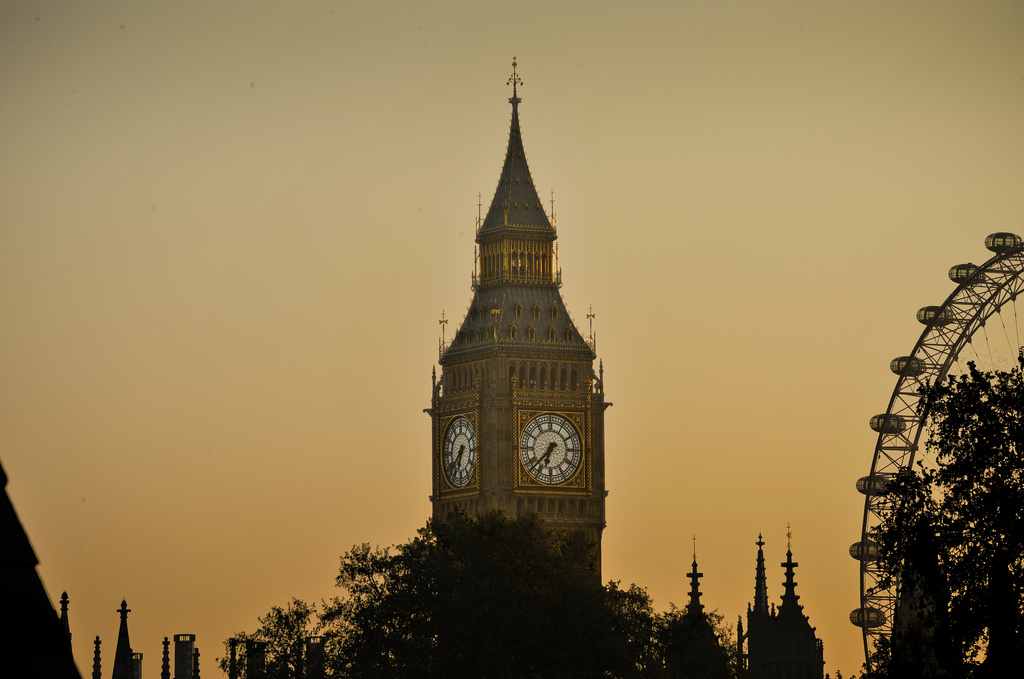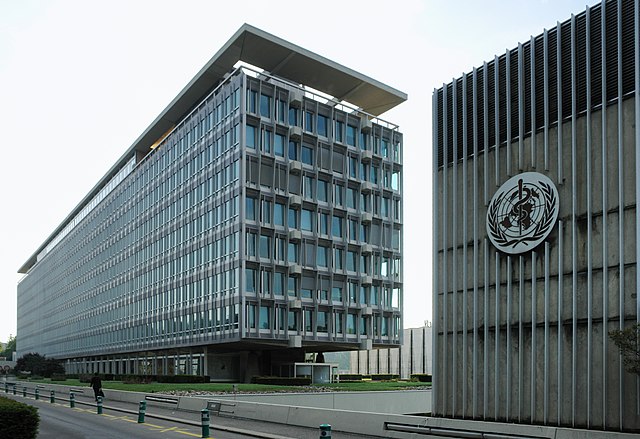The Scottish referendum has revealed the UK’s urgent need for constitutional reform, argues Dr. Nick Wright. He highlights the most important areas in need of complete reconstruction.
Over the last few days, the political class in Westminster has woken up to the real possibility that in just a week’s time the United Kingdom may be consigned to history.
If voters in Scotland choose independence, we will collectively face unprecedented constitutional upheaval. But even if Scots decide to stay in the Union, things cannot simply return to the status quo ante.
What the referendum campaign has done is to shine a light on many of our creaking institutions as never before and release the genie of change. We have no reason to fear that change, however. Britain is badly in need of serious constitutional and institutional reform and we have a tantalizing and probably once in a life-time opportunity to re-make our country.
We could each probably come up with at least half-a-dozen major aspects of British life that need to be reformed, renewed and revitalised. Here are three ideas for how we might start.
First, we need meaningful decentralisation.
One of the most corrosive problems Britain faces today is the over-centralisation in London of decision-making, particularly political, but also economic, financial, cultural etc. There are a number of possible solutions. Devolution of political and financial decision-making power not only to regions but to major cities is perhaps the most obvious. However, while this has been a matter of serious consideration – see for example Lord Heseltine’s 2012 ‘No Stone Unturned’ Report which called for central government to ‘do less but do it better, share more of its power and show greater trust in local people and organisations’ (p.184) – it has so far failed to spark the public imagination. Similarly the oft-suggested idea of having more and more-powerful elected mayors in Britain’s other major cities has been largely rejected by voters when given the choice.
But we do urgently need to reduce the power and scope of central government. At present it all too often seems to suck the oxygen out of meaningful regional or local politics, feeding a sense of powerlessness and the belief that decision-making is something that happens a long way away, involving people with little knowledge and less interest in what is happening locally.
Second, we need genuine political reform.
We could begin with the long-overdue reform of the House of Lords. The debate has gone back and forth for a century about how: should it be elected, appointed, or partly-elected? how long should peers serve? etc. How about an upper chamber with two-thirds of the representatives elected and one-third appointed and where, regardless of how they got there, representatives serve a single 7-year term? Such a chamber could have the same power to delay legislation to maintain the primacy of the Commons but would enjoy the benefit of democratic legitimacy whilst retaining some of the valuable experience and expertise the current chamber provides, particularly in terms of its scrutiny of sometimes ill-thought-through legislation.
Moreover, that chamber need not be especially large. If Germany with a population of 82 million can manage with a Bundesrat of 69 and the 300 million+ citizens of the USA with a Senate of 100, then surely we can reduce our upper chamber from around 775 to 100 or 150? The key difference, of course, is that both Germany and the US have much more powerful regional-level political structures in place, something we could address through the meaningful decentralisation of political power discussed above.
But reform cannot stop there.
The House of Commons needs serious attention in terms of how and how many members are elected, how it takes decisions, etc. For example, however appealing the confrontational, bear-pit atmosphere of PMQs may be to broadcasters and Parliamentary sketch-writers, is this really what our parliamentary democracy should look like in 2014?
Moreover, the fact that all our elected representatives can barely fit physically let alone sit in the Commons chamber is anachronistic and laughable. The ‘Mother of Parliaments’ needs an upgrade: a new, purpose built chamber where members can vote electronically, perhaps? And could that chamber even be located outside London? Not as theatrical, perhaps, but more appropriate to the serious business conducted there.
But that is only tinkering unless we address how our MPs are elected because here, surely, is one of the major causes of the crisis in legitimacy currently bedevilling our political system. However ‘simple’, first-past-the-post means the governments which make our laws or go to war in our name enjoy the support of sometimes significantly less than 50% of the electorate. Moreover, in too many constituencies, so dominant are one or other of the major parties it makes no difference who we vote for, and even if we vote at all.
To increase both participation in and the legitimacy of our political system, the answer is surely to have a system of proportional representation. Whatever the fears over its complexity – and I contend that these are overblown – it will ensure MPs enjoy the support of more than 50% of their constituents. It could also limit the unhealthy stranglehold of the three main parties on our politics.
Finally, and it may be merely a symbolic gesture, perhaps, but something David Cameron could decide from next Friday is to hold at least one Cabinet meeting every month outside London. This has already been tried, I know, but it is too ad hoc. It should become a requirement for all governments. In addition, inviting the First Ministers of Wales, Northern Ireland and (depending on the vote) Scotland to attend would also emphasise the importance of the component parts of the UK within the national political system.
A final suggestion for reform is to ask whether it is time to retire our nuclear deterrent. One of the specific charges of the ‘No’ camp has been the threat to our long-term security and our NATO commitments if our Trident fleet can no longer use the Faslane naval base on the Clyde and we are therefore unable to maintain our constant nuclear patrols.
The debates surrounding Trident and our need for a nuclear deterrent are complex. What we do know is that Trident is eye-wateringly expensive and the money spent on its renewal could easily pay for numerous other domestic priorities, at the same time as plugging major holes in our conventional defence budget. Moreover, there is no consensus within our military about whether we even need it and significant question marks surrounding our real freedom to use it. Whatever else the issue of Trident is, therefore, it is first and foremost political.
We are long overdue a serious discussion in Britain about our position in the world and what type of power we want to be. Trident would be an excellent catalyst for this. Yes, any decision to give it up would have major repercussions on our relationship with the US; but it would also send out a forceful signal around the world that we take our international responsibilities seriously, particularly in terms of nuclear proliferation. Abandoning Trident could be a powerful symbol of ‘New’ Britain’s international intent.
So how do we get there?
One thing is clear: if meaningful change is occur, it cannot come at the behest (or whim) of central government. If we really want to seize the opportunity that lies in front of us, we need to have a nationwide discussion that takes in as many shades of opinion as possible and for which no topic is off limits. What we need, therefore, is a Convention on the Future of Britain.
Such a Convention, meeting in public, should enable citizens from across the country to offer their views on everything from the future constitutional arrangements for the constituent parts of the UK, however many there may be, to how we might tackle long-term challenges such as the huge burden of social and healthcare, the impacts of climate change, and the future of our membership of the EU, not to mention the issues outlined above.
To my knowledge, no such process has ever been tried before, but the advantages in terms of democratic renewal would be huge. With so much discussion in recent years about the institutional and political malaise afflicting mature democracies, it would be a chance to reinvigorate our civil discourse and engage citizens, young and old. Most importantly, it would enable people and not merely politicians, to decide our priorities for the future.
Thursday 18th September will be a momentous day in our history. Personally, I hope Scotland’s voters choose to maintain the union. But whatever they decide, it will mark the start of a new era for our country, galvanising us to confront the weaknesses in our political structures and consider what kind of country we want Britain to be.
It is an opportunity for change we should embrace, not fear.
Dr. Nick Wright is a Post-Doctoral Lecturing Fellow in International Relations at the University of East Anglia.
Photo credit: Mickangel






Nice piece, Nick. My piece has a similar theme: http://www.ueapolitics.org/2014/09/15/citizen-centred-democracy-in-britain/
A good piece Nick, and I agree with you that this is an opportunity for change and renewal. I suppose my only issue is the possibility for the demand for a ‘English’ Parliament as well Westminster. I’m all for devolved power but having a quasi federated state without the constitutional infrastructure to back it up does worry me as would leave us with shaky vertical power structures and a potential for an accountability vacuum.
My god, what a fatuous piece! No mention of England. What do you despise about the very idea of an ‘England’, never mind (and heaven forbid!) an English Parliament at Westminster?
The likes of Nick Wright are in for shock. English voters will not tolerate further interference from Scotland, particularly Scots MPs voting on English issues.
The only reason that the UEA lecturers are against an English parliament is because they are almost all Labour voters, and they think that the English working classes are so dumb that they will vote in right-wing governments.
An English Parliament would, on the contrary, allow a much wider range of parties, even, dare I say, a republican party. The pro-Labour bias on this site is too obvious and it smacks of complacency. And, it is the same complacency which has alienated working class voters in England from the ex-socialist, reformist Labour ‘movement’.
Dear Nick
Thanks for your response. Not quite sure how you could read into that that I despise England, the idea of an English Parliament or anything else. (The exact opposite in fact.) But there you go.
Regards
Nick Wright